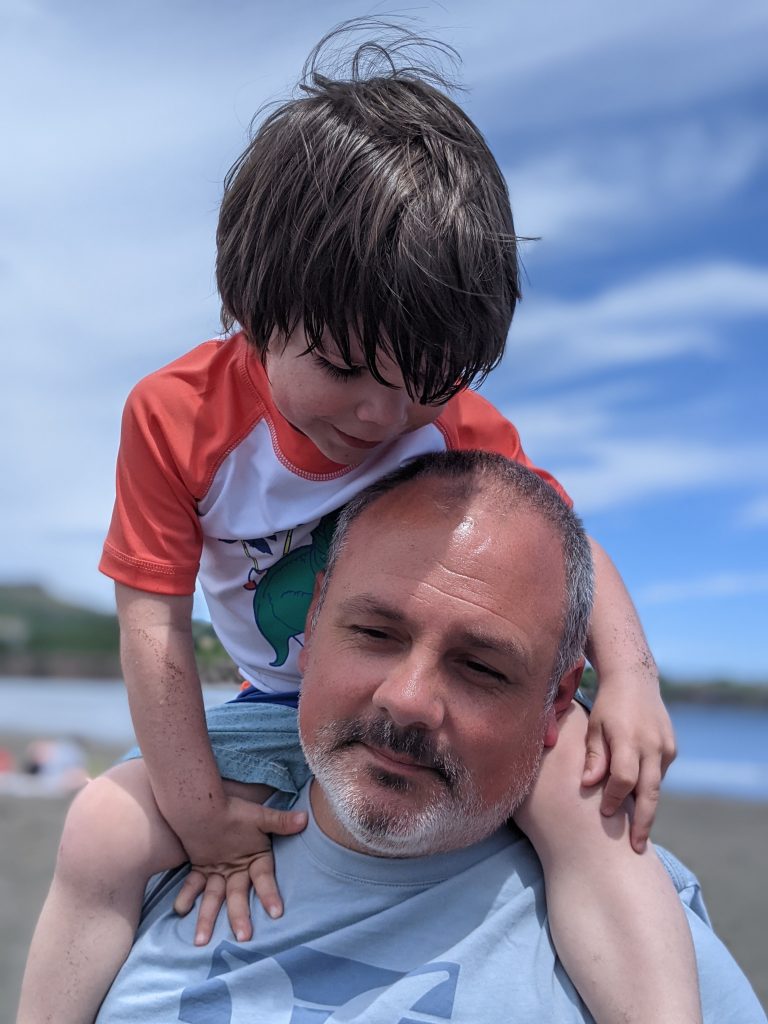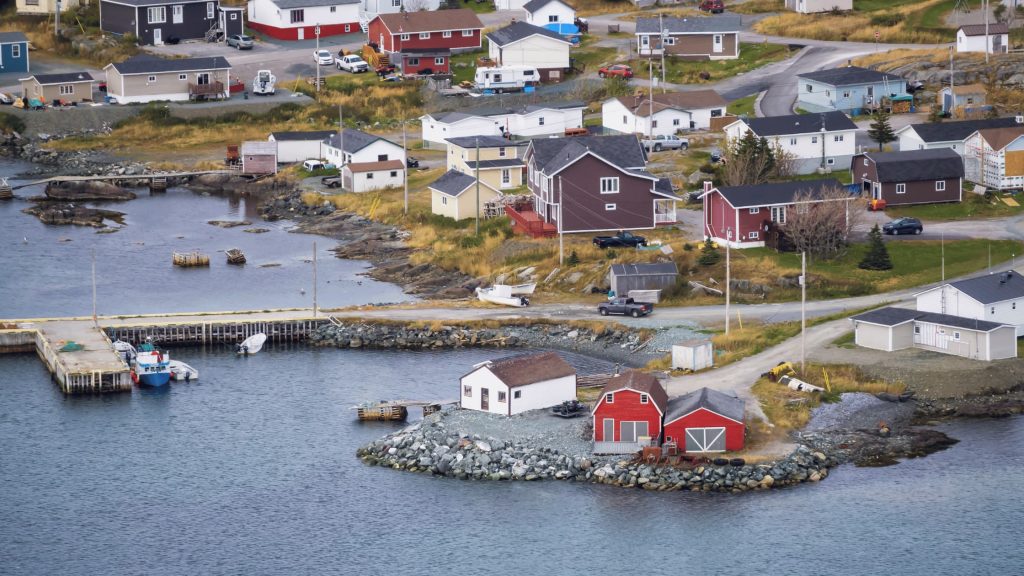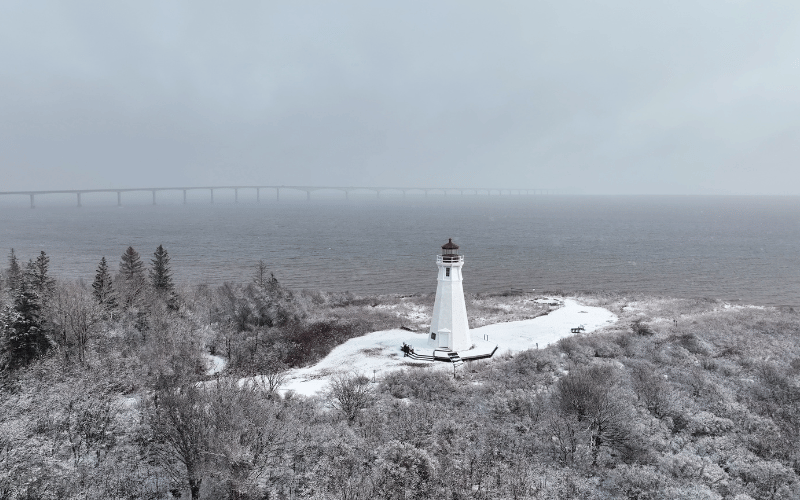Robert Keenan joined Vericatch as our Senior Manager Business Development for Newfoundland and Labrador in 2022. He has a deep background in the industry, and we wanted to introduce him to you in his own words. To that end, we’ve asked him a few questions about his past and how he feels about the DFO transition from paper logbooks to electronic logbooks.

Do you and your family have a background in the fishing industry?
My mom comes from a very large fishing family in a part of Newfoundland called Conception Bay North. She was one of 16 children, and every single one of them worked in the fishery at some point, either on the boat, drying fish on land, or working in a processing plant. I have four uncles and an aunt who are still active fish harvesters, either as crew or enterprise owners. They mostly fish for crab and cod.
What was your pathway into the fishing industry?
I got into the industry through my legal background and my work in community development. I worked in rural communities in Newfoundland and Labrador for five years, and I saw the everyday importance of the fishery for community wealth and well-being. A job opened up at the FFAW – the Union for fish harvesters in Newfoundland and Labrador – and I applied and got it. My main job with FFAW involved understanding the economics of the fishery and negotiating fish prices.
What do you think the biggest challenges facing the East Coast Fisheries are right now?
Unfortunately, there are several big challenges facing the inshore fishery at the moment. But two of the most significant are the lack of reliable fisheries science and the demographic difficulties.
There are huge gaps in fisheries science, and there needs to be a more effective way to incorporate the experiences of harvesters within the fisheries science framework.
With respect to demographics, the average age of harvesters in Newfoundland and Labrador is over 50, and there will be a lot of people looking to retire over the next few years. I’m not sure if we have enough young people available to replace those who are stepping back.
Why do you think electronic logbooks are important? How do you think they’ll transform the industry?
Electronic logbooks are an important technological move for inshore fishers. Logbooks have several purposes, but one of the most important is tracking fishing effort. To do that, harvesters currently have to manually enter information and perform calculations. If harvesters in a specific fishing zone want to do this, it requires getting people together to photocopy pages and to then transplant the written information into a spreadsheet. It is tedious and time-consuming. With electronic logbooks, information can be shared and analyzed very quickly. A macro analysis of the fishery was once only available to DFO, but electronic logbooks help democratize the collection and use of information.
Electronic logbooks should also allow the DFO to conduct better and more timely analyses. The entering of logbooks is time-consuming for DFO, and there have long been concerns that not all information gets entered on time for assessment season. Electronic logbooks will solve that issue. So long as harvesters comply, DFO will have harvester data at their fingertips to be assessed accordingly.
Lastly, harvesters are also more aware than ever before of lost gear, which may become a bigger problem if new gear requirements are implemented. Tracking lost gear digitally should allow for the easier retrieval of that gear, for identifying who owns the gear, and for DFO to advise harvesters where lost gear may be and what to be aware of. There are few things more frustrating to a harvester than lost gear.
You stepped back from FFAW to focus on your family more; what prompted your decision to move into a new role?
Being Secretary-Treasurer of FFAW required an incredible amount of time and attention. I spent very little time with my family. With Vericatch, I have one focus – to provide and promote the best electronic logbook possible to fish harvesters. I met Vericatch CEO Julian Hawkins a few years ago on a traceability initiative, and I found him to be genuinely sincere about providing good products to fish harvesters. That made it easier to say yes when asked if I would be Vericatch’s representative in Newfoundland and Labrador.
What have you found most interesting about ELOG technology and the move from paper logbooks to electronic logbooks since you started with Vericatch?
What I find most interesting is how else electronic logbook technology can be used. A logbook provides critical but very general information. What could we do if we allowed harvesters to input a little more data, to be more precise, and to allow them to mix and match information in whatever manner they saw fit? I think that could bring about positive changes to how a fishery is conducted and how we understand fishing sustainability.
How have you found working with a company that’s West Coast based?
Outside of adapting to the time zone difference, I don’t find there to be any difference working with a west coast company. Everyone on our team is smart, hard-working, and committed to making the best product. Even though they are not based on the east coast, they ask a lot of questions about how the fishery works, and they seek out a lot of feedback. They want to hear the perspective of fish harvesters – what works and what can be improved. Nothing is taken for granted. My biggest concern is understanding the acronyms that the young people on our team use in messages. I’m only 45 years old, but it makes me feel ancient. I wish they provided you with a reference key.
What are you looking forward to in the industry for 2023?
I’m looking forward to the DFO approving electronic logbooks for 2023 on a voluntary basis. It would be good for harvesters to have an opportunity for early adoption of the technology before it becomes mandatory in 2024.
What’s your vision for ELOG uptake? What would you like to see by 2024, when the DFO will make ELOGS mandatory for all Canadian fisheries?
My vision is more about how the transition to ELOGS actually occurs. Whenever a new technology is introduced, there are bumps in the road, some expected and some unforeseen. My vision is that early adoption in 2023 will help us sort out some of those bumps before ELOGS are mandatory. I also hope that harvesters will be given the opportunity in 2023 to become comfortable with the technology and understand how it works and what benefits it brings. These harvesters would then be able to vouch for the technology in 2024 and to provide peer-to-peer support.



